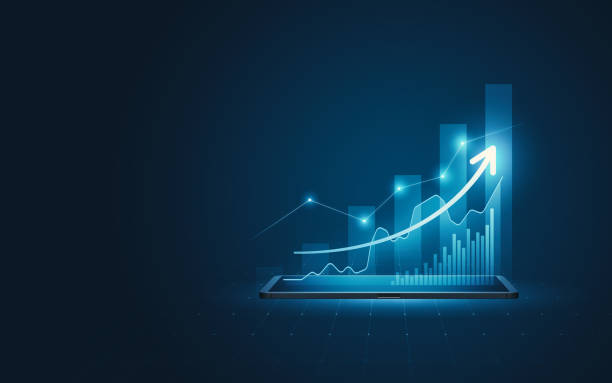The Role of Technology in Modern Stock Trading
The stock market has evolved dramatically over the past few decades, largely due to the rapid advancement of technology. What was once a manually-intensive process involving phone calls, physical order slips, and open trading floors has now been transformed into an efficient, fast-paced, and highly automated environment. Modern stock trading is deeply intertwined with technology, which plays a critical role in improving the speed, efficiency, and accessibility of trading.
In this article, we will explore how technology has revolutionized stock trading, the tools and innovations that have shaped modern markets, and the challenges and opportunities they present.
The Shift from Traditional to Electronic Trading
Historically, stock trading was conducted on physical trading floors, where traders would shout out buy and sell orders to one another in a process known as “open outcry.” While this system served its purpose for decades, it had its limitations. The process was slow, susceptible to human error, and could not support the growing complexity and speed of financial markets.
With the advent of electronic trading platforms, these old systems were largely replaced. Electronic trading allows investors to place orders through computers, smartphones, or specialized software in real time. This advancement has led to faster execution of trades and significantly reduced transaction costs.
Today, platforms such as E*TRADE, TD Ameritrade, and Robinhood offer individual investors direct access to stock markets without the need for a physical broker. These online brokerages have opened up trading to the masses, making it more accessible than ever before.
Algorithmic Trading: The Rise of Computer-Driven Decision Making
One of the most significant technological advances in modern stock trading is the rise of algorithmic trading. Algorithmic trading involves the use of computer programs to automatically execute buy and sell orders based on predefined criteria such as price, volume, and timing. These algorithms are capable of analyzing vast amounts of data and executing trades in fractions of a second, far quicker than any human trader could manage.
High-frequency trading (HFT) is a subset of algorithmic trading that focuses on executing a large number of orders at extremely high speeds. HFT firms leverage powerful computers and advanced algorithms to exploit small price discrepancies in the market. While high-frequency trading has made markets more liquid and efficient, it has also raised concerns about fairness and the potential for market manipulation.
Real-Time Data and Analytics
Another way technology has enhanced stock trading is through real-time data feeds and advanced analytics. In the past, investors relied on end-of-day reports or delayed data to make decisions. Now, traders and investors can access real-time price updates, news feeds, and market sentiment indicators at the click of a button.
Big data has become an indispensable tool in analyzing market trends, corporate earnings, economic indicators, and investor sentiment. Investors use data analytics platforms like Bloomberg Terminal, Reuters Eikon, and other specialized software to track and interpret vast amounts of financial data. This helps them make informed decisions in an ever-changing market landscape.
Furthermore, technology has enabled the use of technical analysis (the study of historical price and volume patterns) and quantitative analysis (using mathematical models to predict future price movements) on a much broader scale. The rise of these analytical tools has led to the development of algorithmic trading strategies, automated portfolio management, and robo-advisors.
Mobile Trading Apps: Making Stock Trading Accessible Anywhere
The proliferation of mobile trading apps has made stock trading more accessible than ever before. Today, investors can monitor their portfolios, research stocks, and execute trades from their smartphones or tablets. Apps such as Robinhood, Acorns, and Webull have democratized stock trading, allowing a broader range of people to participate in the market, regardless of their experience or capital.
These mobile platforms offer low or no commissions, making stock trading more cost-effective for everyday investors. With mobile apps, investors can now track market movements, receive instant notifications about stock price changes, and make trades on-the-go, all from the palm of their hand.
Blockchain and Cryptocurrencies: The Future of Trading?
Blockchain technology, the underlying structure of cryptocurrencies like Bitcoin and Ethereum, has the potential to revolutionize stock trading in the future. Blockchain offers secure, transparent, and immutable transaction records, which could greatly enhance the speed, security, and efficiency of stock trading processes.
Tokenization, the process of converting ownership of real-world assets (such as stocks, bonds, or real estate) into digital tokens on a blockchain, is another area where blockchain could disrupt traditional stock trading. Tokenized assets would make it possible for investors to buy fractional ownership in high-value assets, such as art or real estate, making them more accessible to a broader pool of investors.
Moreover, decentralized finance (DeFi) platforms are emerging, allowing investors to trade financial instruments without the need for traditional intermediaries like brokers or banks. While still in its infancy, blockchain technology could one day enable a new type of decentralized stock exchange, reducing the need for centralized exchanges and offering new opportunities for investors.
Artificial Intelligence (AI) and Machine Learning in Trading
The integration of artificial intelligence (AI) and machine learning into stock trading has brought about unprecedented advancements in market analysis and decision-making. AI systems can analyze vast datasets, recognize patterns, and make predictions about market trends with high accuracy.
Machine learning algorithms can be trained to improve trading strategies over time by learning from historical data and adapting to new conditions. Hedge funds, investment firms, and even individual traders are increasingly using AI to optimize their trading strategies, manage risk, and increase profitability.
AI-powered tools such as robo-advisors are also gaining popularity, providing automated, data-driven investment advice tailored to individual investors. These AI-powered platforms use algorithms to create personalized portfolios, rebalancing them periodically based on market conditions and the investor’s risk profile.
The Role of Cloud Computing and Data Security
Cloud computing has transformed stock trading by providing traders and investors with the ability to access their portfolios and perform transactions securely from any device, anywhere in the world. Cloud-based platforms offer scalability, flexibility, and efficiency, enabling firms to handle vast amounts of market data and process trades faster than traditional on-premise systems.
However, the increased reliance on technology also brings with it concerns about cybersecurity. Protecting sensitive financial data from hackers is paramount, and stock exchanges and trading platforms invest heavily in encryption and security measures to ensure that transactions and data remain safe.
The Future of Technology in Stock Trading
As technology continues to advance, the future of stock trading looks increasingly automated and data-driven. The role of human traders will likely diminish in favor of algorithmic trading, AI systems, and machine learning models that can analyze data and execute trades with greater speed and accuracy.
The continued rise of blockchain, decentralized exchanges (DEXs), and smart contracts may also alter how we trade stocks, potentially reducing the need for traditional intermediaries like brokers. Additionally, the growth of mobile apps and accessibility improvements will ensure that stock trading remains open to people of all backgrounds.
Conclusion
Technology has radically transformed the stock market, making it faster, more efficient, and more accessible. From electronic trading and algorithmic strategies to mobile apps, AI, and blockchain, technology continues to drive innovation in the world of stock trading. While these advancements offer exciting opportunities, they also come with risks, including increased volatility and concerns over cybersecurity.
For traders and investors, staying informed about technological developments is key to adapting to an ever-evolving financial landscape. Understanding how technology impacts stock trading will not only help investors make smarter decisions but will also ensure they are prepared for the future of the market.

